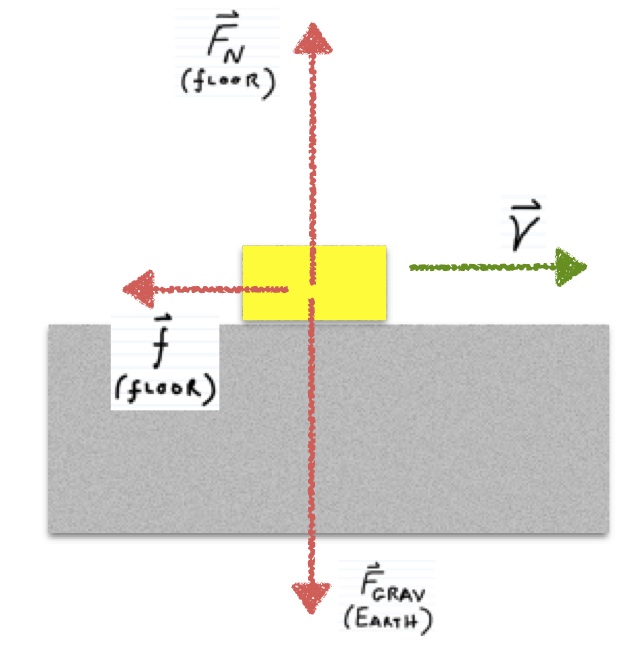This is an old revision of the document!
Example: Sliding to a Stop
You take a 3 kg metal block and slide it along the floor, where the coefficient of friction is only 0.4. You release the block with an initial velocity of $\langle 6, 0, 0\rangle m/s$. How long will it take for the block to come to a stop? How far does the block move?
Facts
Mass of metal block = 3 kg
The coefficient of friction between floor and block = 0.4
Initial velocity of block = $\langle 6, 0, 0\rangle m/s$
Lacking
Approximations & Assumptions
Representations
Solution
$ x: \Delta p_x = -F_N\Delta t $
$ y: \Delta p_y = (F_N - mg)\Delta t = 0 $
Combining these two equations and writing $ p_x = mv_x $, we have
$ \Delta(mv_x) = -mg\Delta t $
$ \Delta(v_x) = - g\Delta t $
$ \Delta(t) = \dfrac{0 - v_{xi}}{-g} = \dfrac{v_{xi}}{g} $
$ \Delta(t) = \dfrac{6 m/s}{0.4 (9.8 N/kg)} = 1.53s $
Since the net force was constant, $v_{x,avg} = (v_{xi} + v_{xf})/2$, so
$ \Delta x/\Delta t = ((6 + 0)/2) m/s = 3m/s $
$ \Delta x = (3 m/s)(1.53 s) = 4.5m $
